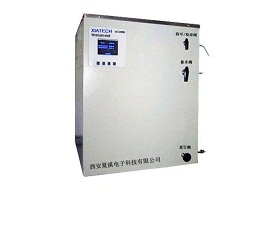Accurate measurements of isobaric specific heat capacity (cp) are the important fundamental information for calculating heat-transfer and thermodynamic performances in many industrial applications. Particularly, experimental data on heat capacities are useful in the development of correlation and prediction schemes for the standard Gibbs free energies of formation and activity coefficients of aqueous solutes over a wide range of temperature and pressure. These quantities are of primary importance for the calculation of phase and chemical equilibrium in various systems of geochemical and technological interest.
Flow calorimetry
There are serious measurement methods for heat capacity, including differential thermal analysis (DTA), differential scanning calorimetry (DSC), adiabatic calorimetry, electrical pulse calorimetry, flow calorimetry and etc. In which flow calorimetry is designed for measuring the specific heat capacity of fluids. In facts, flow calorimetry has already been successfully applied to temperature range up of 700K and pressure range up to 40MPa.
HC2000 flow calorimetry
HC2000 flow calorimetry is developed for accurate heat capacity measurements of fluids. It is a product of more than 15 years of research experience on thermophyscial properties measurement of fluids. There are several typical advantages of HC2000:
¡ï Accuracy for water is better than 1%, in all measurement range, accuracy is better than 2%;
¡ï Able to extent the experimental temperature range from (243 to 393K) together with accessory modules.
¡ï Consideration of automatization and intelligence during the design can simplify the user¡¯s operation.
¡ï Automatic data acquisition and data analysis;
Theory of flow calorimetry
Figure 1 shows a simple schematic of the principle of a flow calorimetry. A liquid sample at constant temperature and pressure flows in a calorimeter with a certain mass-flow-rate. A sheathed thermometer and a micro heater are installed in the calorimeter. The sample is heated by the micro heater with a power Q. Temperatures of the sample before heating (T1) and after heating (T2) are measured by the thermometer. A temperature increment (¨ST) is determined from the difference between T1 and T2.
cp is obtained from the following equation:


